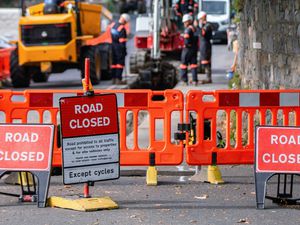Island pollution: paying the price of emission
STATISTICS that show Guernsey is consistently more polluting than Jersey – and per capita produces twice the amount of greenhouse gas emissions – should make people pause for thought.
What happens next really depends on your outlook.
Many will simply shrug their shoulders, point out that the island is a mere blip on the pollution radar, maybe highlight that the cruise ships in the Little Russel or the jets flying above them are worse, and continue on their merry way.
At the other end of the spectrum, there are those that will stress individual responsibility, the power of many small actions to add up to one large one, that we all have a part to play to preserve and enhance the world around us.
In reality, a battle of minds, in the short-term at least, the second group will not change the first group's minds, nor vice-versa.
It is one of the traits of the modern world, people are comfortable with their beliefs, whatever evidence there is to the contrary, because it is now just enough to believe.
The pollution figures should be a call to action.
Jersey produces 3.56 tonnes of CO2e per person, compared with Guernsey at 6.08.
Overall emissions in 2015 were 383.2 kt of CO2e in Guernsey and 359.8 in Jersey.
They will not be a prompt solely in themselves because that is not the society or world we live in.
The three largest contributors locally are landfill, power generation and transport.
They are all things that can be acted on if there is a will to do so, but the driver will rarely be with a global conscience in mind, that will be a positive side-effect at best.
Landfill is being ended to a large degree in mid-2018, which will help, but its legacy of methane gas release will stay.
There is no positive spin on landfill apart from a hard-nosed economic one – it was cheap and it was easy, for many that was enough and indeed would continue to be.
But the export strategy for our rubbish is on the way, there is no going back.
Power generation is where Guernsey and Jersey have both made significant steps in emissions simply by plugging into France.
When it happened it was a step change, it meant both islands could easily meet targets in international climate agreements.
Emissions have fallen by 29.4% in Guernsey since 1990 and by 40% in Jersey.
But the driver was financial and security of supply.
Guernsey still out-pollutes Jersey in power generation, even in years when all the cable links are firing, one factor will be the capacity limitations of just having one connection to Jersey.
Plans are being drawn up for a direct link to France, but again the greening issue is a sideshow to the financials and security side of things.
Both these sectors are predominantly government led, big picture items where the public is taken along for the ride.
Transport is the second highest contributor to Guernsey's emissions in percentage terms – in 2015 it accounted for 26.4%.
Three-quarters of this is down to vehicles.
But as has been seen, any moves to tackle excessive vehicle use is the one where you are likely to raise the hackles and run into significant resistance.
Change is coming, whether people still want to run around in cars belching black diesel fumes out of their exhausts or not.
It will be, every pun intended, driven by the electrification of vehicles.
Volvo has announced it will make no purely petrol-engined cars after 2019; the British and French governments expect the all-electric future to arrive by 2040; and Tesla has just started selling its first electric car aimed squarely at the middle classes – the Tesla 3 sells for $35,000 in the US.
The car market is all heading in one direction, manufacturers see the pound, euro, yuan and dollar signs, and Guernsey will be swept along and needs to be prepared for that.
You are likely to run into resistance by dictating to people what they should or should not do.
But setting out a coherent argument for change can slowly evolve thinking, especially when you can localise things.
So maybe it becomes about cutting localised air pollution, especially around schools, arguing that children are more susceptible to the impacts than adults and asking do you really want to make a child ill, or limit their lives.
Maybe some will be taken by wanting to live in a quieter world, or one where there is less congestion.
But a big one will always be the financials, how it effects the consumer's back pocket.
If you can make an argument that something will ultimately be better value, with the green benefits a happy by-product, then you will win the day – even with the hard-nosed climate change deniers or those who find it more comfortable to blame China, or Africa, or the US.





